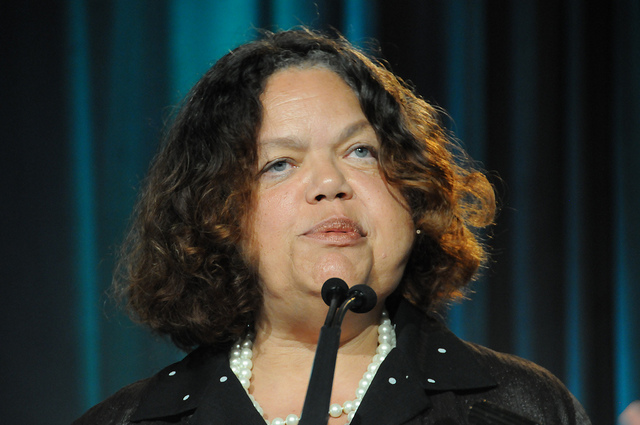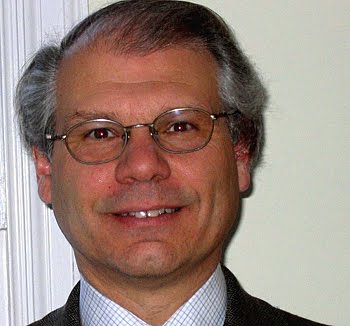Fuse Arts Commentary: WGBH Damage Control — Lip Service for Jazz
The plans to serve the jazz community that WGBH offered to JazzBoston during the meeting, from an internet jazz station to making Eric Jackson more visible on the station’s talk shows, are only part and parcel of the strategic dithering, a cover for lowering standards and doing little.
By Bill Marx.
Is anyone surprised that a recent meeting on the slashing of quality jazz programming at WGBH, held between JazzBoston representatives and WGBH executives Marita Rivero, vice president and general manager for Radio and Television, and Phil Redo, managing director of News and Culture for WGBH-FM, proved that the station is as arrogant as it is clueless about its programming decisions? Sorry JazzBoston, but WGBH’s efforts at reaching out are diplomatic feints aimed at airbrushing its mud-splattered image. Your well-intentioned efforts to expand jazz coverage on the station will most likely be used as window dressing to sell shoddy merchandise.
What does the station think about the music? The WGBH flak letter sent out to those who complained about cutbacks to the hours for Eric in the Evening attempted to smooth over hard feelings by suggesting that the weekends were made for the deep contemplation and reflection that jazz encourages—the weekdays are made for the cerebral exercises served up by NPR and PRI talk-meisers. Monday through Friday, WGBH’s two hour yak fest Boston Public Radio is supposed to make us smarter about complex national and local issues.
The truth, of course, is very different. According to notes of the meeting posted by Pauline Bilsky, Executive Director of JazzBoston (the other JazzBoston attendees were Directors Mark Harvey and Emmett Price), Redo is not interested in providing context when it comes to jazz, any day of the week. For Bilsky, WGBH’s decision to ditch depth in order to reach a larger audience may reflect an astute understanding of our appetite for culture. On Facebook, she posted these sardonic comments as part of a thread about issues raised by the meeting: “Knowledge and scholarship are precisely what WGBH is NOT looking for. Phil said straight out, ‘We don’t want to be too professorial.’ Wisdom? Fageddaboudit. WGBH is going after an audience they think doesn’t value those things. Richard Hofstadter explains it all in his 1963 classic, Anti-intellectualism in American Life).” Sad to say, the station doesn’t have to depend on the expertise and knowledge of long-time jazz hosts Eric Jackson and Steve Schwartz to appeal to the public.
To me, the end of jazz programming that supplies background, history, etc suggests that WGBH, Redo, and Rivero are also indifferent about creating quality news programming. Why? Bilsky gathers from the meeting that “three years after announcing they were going to an all news/talk format, WGBH is still trying to figure out what it is doing with its radio station.” That befuddlement, though it is very evident on-air, generates considerable profits for quite a number of people, so why change a winning formula? Mediocrity pays. As long as NPR and PRI news programming is available, the donations and underwriting will roll in. Redo can simply put up something that resembles substantial news/talk programming to take up the hours between Morning Edition and All Things Considered.
Boston Public Radio offers daily evidence of the station’s abiding commitment to the expedient in the name of keeping programming superficial and non-professorial. Substantial coverage of jazz, a niche interest that to the suits at WGBH skews to an older demographic, is not a serious possibility. Food programming? Now you are talking …
Thus the plans to serve the jazz community that Redo and Rivero presented to JazzBoston during the meeting, from internet jazz programming to making Eric Jackson a more visible presence on the talk shows (once a month!), are only part and parcel of the strategic dithering, a cover for lowering standards (no expertise allowed) and doing and spending little. Does anyone think the station will put the necessary time and resources into its online jazz programming when it still hasn’t figured out the direction of its on-air news/talk offerings? (Keep in mind that online arts coverage is in the hands of freebie interns and publicists.)
Bilsky notes that Redo thinks one of the solutions to the floundering station’s problems has to do with wooing the “youth”: “They are looking for ‘the next generation of DJs’ for help with streaming content and in-studio recording sessions. The key word is ‘young,’ Phil said.” “Phil indicated that younger voices might be more suitable for daytime spots.” “Some of the challenges Phil said they would like community input on are giving the Internet jazz station a name that brands it as local, incorporating a ‘local sensibility’ into the programming, finding talented young DJs, and scheduling different styles of jazz for different audiences.”
The ratings emergency for the public media is clear—its audience is aging—but WGBH hasn’t the slightest idea of what to do because the corporate gray hairs are in charge. (Fielding a healthy combination of old hands and rookies never occurs to them, perhaps because you have to pay the veterans.) Anyone who has listened to Boston Public Radio regularly will note the middle-aged exhaustion of it all—oldsters thinking they are hip when they talk about movies when anyone who knows kids is aware of how central video games are in their lives. For some reason, the demand for youth in jazz programming has not hit Boston Public Radio — there, the dinosaurs still rule.

Marita Rivero, vice president and general manager for Radio and Television. When the going gets tough, the tough re-brand. Photo: PBS Pressroom.
Redo’s wish to draw in the ‘youth’ is symptomatic of the resource-starved, dumbed-down approach that Bilsky detects in his stripped-down preferences for jazz coverage. WGBH kingpin Jon Abbott’s grand rhetoric about using the station to educate and inspire turns out to be a smokescreen. For Redo, the mission of WGBH comes down to exploiting the brand: try to expand the station’s customer base by giving its listeners more of the same, reject the fresh and surprising, excise expertise and experience, eschew the considerable investment that first-class news-gathering and music programs demand. This is the cynical perspective that gives us the same NPR programming on WGBH as on WBUR.
Why didn’t WGBH bring in someone who had an innovative vision of news/talk? Redo is not about creating quality news coverage–he is about making use of old-fashioned snake oil marketing. Here is what he told the Boston Globe in 2007 about right wing shock jock Jay Severin, when Redo was connected with WTKK: “We’re really proud of Jay,” says Phil Redo, market manager for Greater Media Boston, which owns WTKK.” He represents the next generation of talk hosts. He’s smart, engaging, and local.” The “next generation” of talk radio hosts was bounced from WTTK in April, 2011 after he boasted of sleeping with female staffers. I have no idea if Redo really believed what he said to the Globe about Severin, a conservative who went too far. But at the very least it suggests that Redo will say whatever is needed to serve a “brand,” no matter how puerile its product. That is why he gets the big bucks (and why JazzBoston should be wary).
And that explains why Redo was hired and jazz axed. Rivero and the other 16 fat cat vice presidents were well paid during the station’s past decades; now they face transformative times in the media. Summer homes and plush bonuses were endangered, so the decision was made to beat up the union, cut costs, re-brand the brand, and hire a marketer to turn WGBH into a copycat version of WBUR, hoping that some listeners, out of confusion, will set their dial on WGBH rather than WBUR. (Given that WGBH’s ratings are still scraping rock bottom, not many people are making the switch, accidentally or otherwise.)
Music will never receive the attention of yore on any WGBH platform; it separates WGBH from the stampede to news/talk, a genre that is already turning geriatric. Which is why JazzBoston should greet Redo and company’s overtures with extreme caution, lest it agree to a Faustian bargain that will damage its own considerable reputation by placing its blessings on sub-par, undernourished programming. The ‘new’ WGBH will probably tarnish whatever it touches.


This is probably the first of many comments from me. “Shoddy merchandise” certainly describes what they’re selling when they ask for our money to support their fine works (that’s tongue in cheek BTW). The concept of performance for promise is as old as the hills. WGBH’s failure to deliver is chronic and has persisted for the five+ decades I’ve been around.
I think a public charities bureau investigation (in Martha Coakley’s office – our Commonwealth Attorney General) is overdue, sanctions need to be quick and certain. A challenge to the WGBH-FM broadcast license (their use of OUR AirWaves) cannot be made until early 2015. Here’s a link to the public charities bureau complaint form which, I believe, can be submitted by any disappointed listener because they publicly ask for donations and it is where they register for that each and every year. The bureau does not need to hear complaints about radio programming exactly, but deceptive and false fundraising promises not kept is what they’re all about!